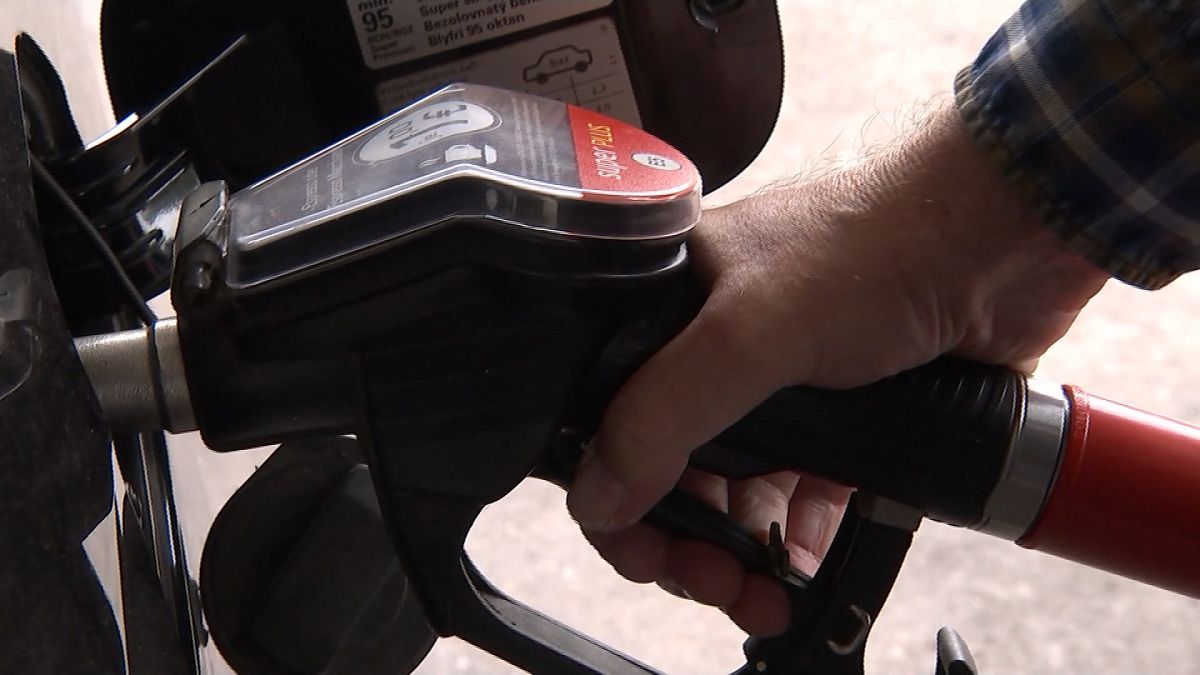Little did we know how the Russian war in Ukraine would impact on the lives of people living in the world, but eleven months on, everyone is feeling the pinch in their pockets after food and energy prices increased. Euronews takes a look in Review of the Year
The world woke up on February 24, 2022, with the start of a war in Europe and with little idea of the impact it would have on everyone's lives.
If the dependence on Russian energy was a well-known fact, few would have realized that Ukraine is one of the world’s breadbaskets for its agricultural production.
Sanctions
The condemnation of the Russian invasion of Ukraine by most world leaders was followed by lists of sanctions against Moscow.
In response, Russian President Vladimir Putin drastically reduced sending gas to Europe and in August switched off the Nord Stream 1 pipeline into Germany.
Before the invasion of Ukraine, Russia was Germany's top supplier, delivering Europe's largest economy with just under a third of its gas.
European heads of state and government tried to take common measures but resistance was proportionate to Russia's energy dependence.
Ministers scrambled to secure alternative supplies, painfully aware that heavy dependence on Russian gas had left most of the nations woefully exposed.
Energy prices
In the first half of 2022, average household electricity prices in the EU increased sharply compared with the same period in 2021, from €22.0 per 100 kWh to reach €25.3 per 100 kWh. Average gas prices also increased compared with the same period in 2021 from €6.4 per 100 kWh to €8.6 per 100 kWh in the first half of 2022.
Compared with a year ago, the weight of taxes and levies in the final electricity and gas bills charged to households in the EU in the first half of 2022 decreased significantly as Member States put in place governmental allowances and subsidies to mitigate high-energy costs.
On winter's doorstep, European Union nations have not been able to surmount bitter disagreements as they struggle to effectively shield 450 million citizens from massive increases in their natural gas bills as cold weather sets in.
Most of the emergency meetings only showed how the energy crisis tied to Russia's war in Ukraine has divided the 27-nation bloc in almost irreconcilable groups.
Following several delays, energy ministers are back trying to break a deadlock between nations that are demanding cheaper gas to ease household bills - including Greece, Spain, Belgium, France, and Poland - and those like Germany and the Netherlands that are insisting a price cap could cut supplies.
Ukraine's grain
Ukraine is the world's fifth-largest exporter of wheat, fourth-largest exporter of corn and top exporter of sunflower oil and meal, according to the United Nations.
The country's grain exports have slumped since February as the war closed off Ukraine's Black Sea ports, driving up global food prices and prompting fears of shortages in Africa and the Middle East.
However, three Black Sea ports were unblocked at the end of July under a deal between Moscow and Kyiv, brokered by the United Nations and Turkey.
The deal was set to expire at the beginning of November but Russia and Ukraine have agreed to extend an agreement to allow grain exports from Ukrainian ports through a safe corridor in the Black Sea.
These last measures help to control the rise in food prices but it is not enough.
Eurozone
The eurozone’s annual inflation rate has increased to 10.7% and exceeds 20% in the three Baltic States - Estonia, Latvia, and Lithuania.
The EU's executive revised its inflation forecast from July, predicting that prices would peak at year-end and remain high in 2023. Inflation will average 9.3% in the EU and 8.5% in the eurozone for 2022, according to Brussels.
At the end of October, the European Central Bank announced another jumbo interest rate hike and said further increases would follow to combat soaring inflation, even as its President, Christine Lagarde, warned a eurozone recession was looming. ECB is under pressure to rein in record-high inflation, mainly driven by surging food and especially energy prices in the wake of Russia's war in Ukraine.
Protest and strikes
Protests and strikes erupted across Europe as soaring inflation, and the cost of living crisis headed a ’winter of discontent.'
With increasingly tight family budgets, thousands of European citizens have taken to the streets to protest against the rising cost of living and demand urgent economic measures from national governments and the European Union to combat the increase in poverty.
Christmas 2022
We reached the end of the year in a climate of tension and austerity.
With the prospect of blackouts and energy rationing looming, officials in cities including Helsinki, Lisbon, and London are pulling the plug on some decorative lighting in main streets and squares, to save on energy bills.
